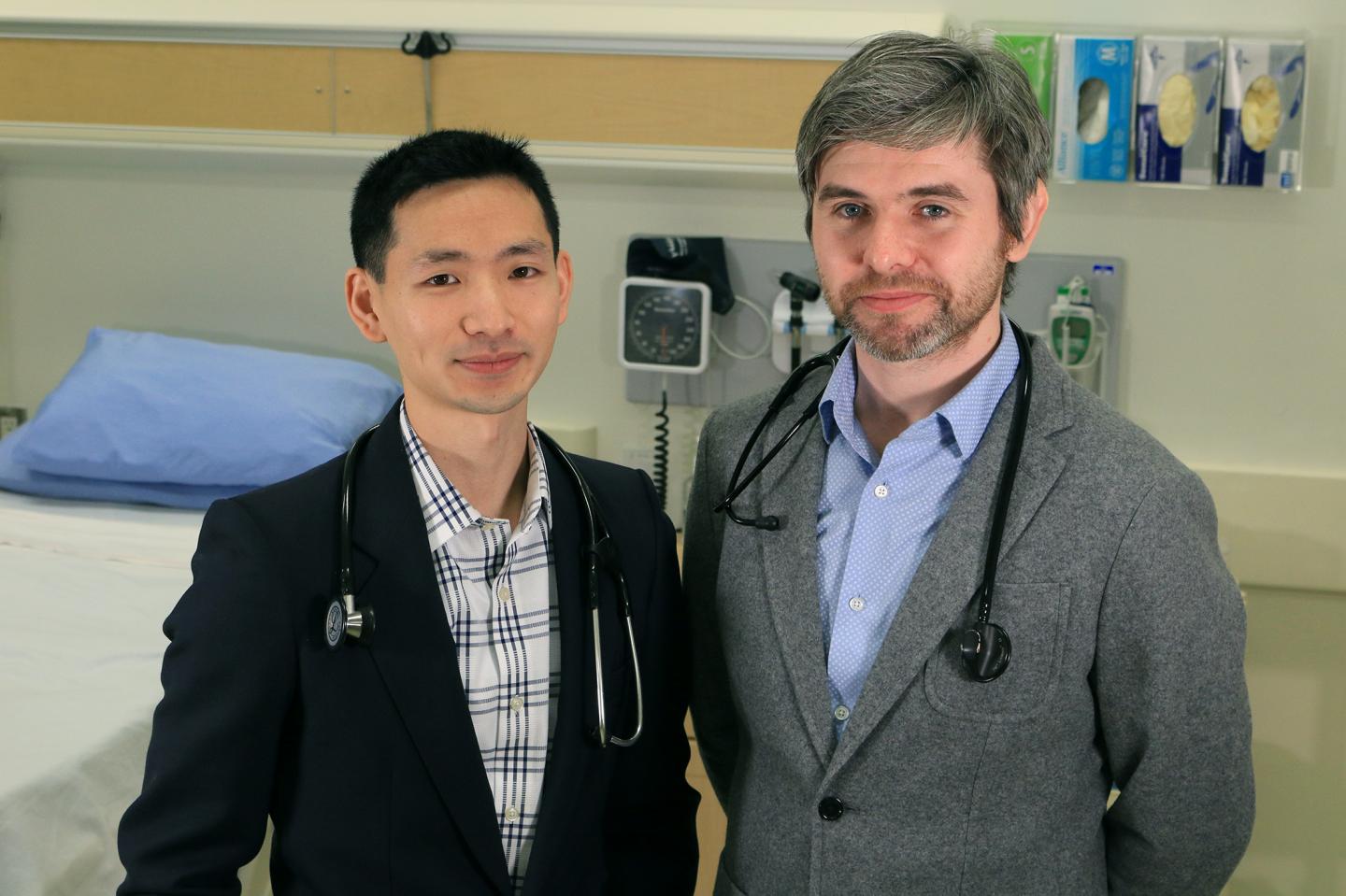Five facts about penicillin allergy

Credit: Tina Depko/McMaster University
Hamilton, ON (Feb. 25, 2019) – You may think you have an allergy to penicillin, but you probably don’t.
Nine out of 10 people who believe they’re allergic to the antibiotic either aren’t allergic or have only some intolerance, and eight of 10 people who had an allergic reaction to penicillin 10 or more years ago will now be fine.
Two McMaster University physicians have five facts about penicillin allergy published today in the Canadian Medical Association Journal (CMAJ). Derek Chu is a fellow in clinical immunology and allergy and David McCullagh is a fellow in infectious disease in the Department of Medicine.
They say the five things to know about a penicillin allergy are:
- Penicillin allergy is commonly reported, but nine times out of 10, a patient can tolerate penicillin.
About 10 per cent of people report a penicillin allergy, but 90 per cent to 95 per cent are not truly allergic. Reasons for this include mislabelling intolerances as allergies and waning of the allergy over time. - Penicillin allergy is lost over time, with 50 per cent of people over five years, and 80 per cent over 10 years losing their allergy.
Those who had reactions more than 10 years ago are unlikely to still be allergic and should be tested before given penicillin. If there is an strong indication for antibiotics, an allergist physician should be consulted about therapy. - A penicillin allergy label is bad for patients and the health-care system.
People labelled with penicillin allergy are offered more costly and less effective second-line and broad-spectrum antibiotics which have a significantly increased risk of infections such as methicillin-resistant Staphylococcus aureus (MRSA) and Clostridium difficile (C. diff). - Patients who suspect penicillin allergy can be identified to determine if they should be seen by a specialist.
A side effect of penicillin such as nausea should not be noted as an allergy. As well, people without a personal history of a penicillin allergy or who have tolerated penicillin in the past, do not need to avoid penicillin.
Severe allergic drug reactions causing hospitalization due to widespread skin blistering, organ failure, and/or joint swelling are rare and these patients should strictly avoid penicillin until specialist evaluation.
True immediate allergic reactions cause rapid-onset hives, lip and face swelling, and anaphylaxis. Patients with these kinds of reactions, or who are unsure if this type occurred or not, should be evaluated by an allergy specialist. - Allergy referral and testing is underused, but is safe, accurate, fast and cost-effective.
Allergy testing over one to two hours using a combination of skin and challenge testing by trained personnel has been shown to be safe and effective for children and adults close to 100 per cent of the time. Patients with a possible penicillin allergy should talk to their doctor about whether or not they need penicillin allergy testing.
###
Read the article here: http://www.
A CMAJ podcast of an interview with the author may be found here: https:/
Photo attached
Photo caption:
Doctors Derek Chu, left, and David McCullagh of McMaster University. Photo by Tina Depko/McMaster University
For more information, please contact:
Veronica McGuire
Media Relations
Faculty of Health Sciences
location: HSC-2E46
phone: 905-525-9140 x 22169
email: [email protected]
Media Contact
Veronica McGuire
[email protected]




